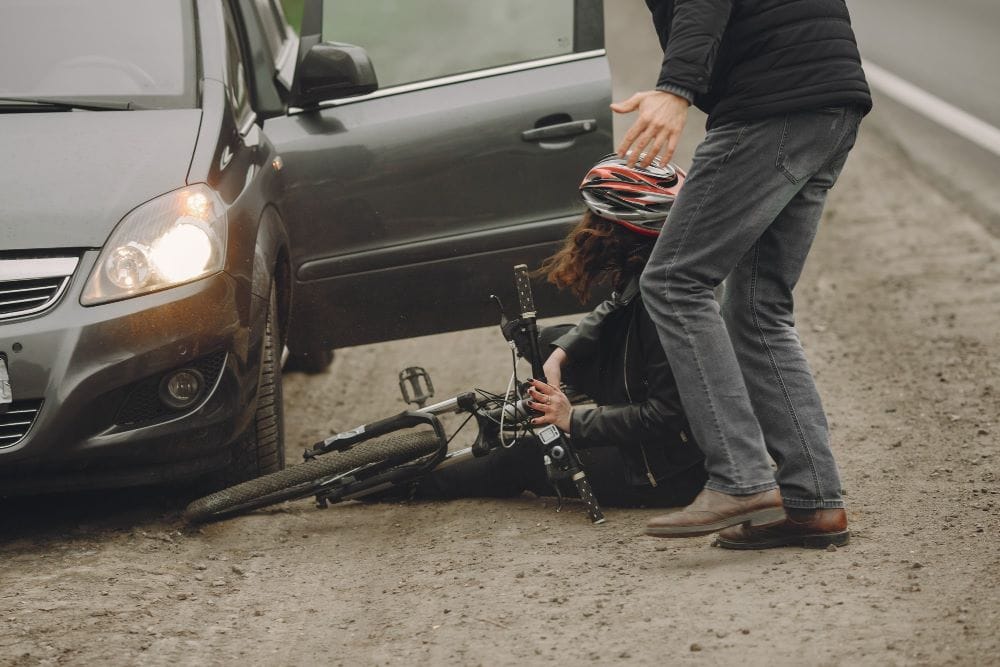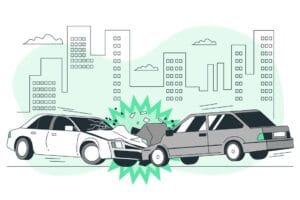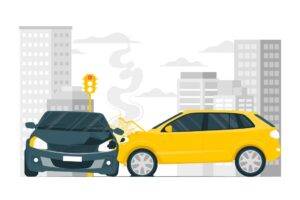Bicycle accidents arising from weeds, sticks, sand, gravel, or other kinds of natural debris are not typically anybody’s fault. If an accident happens because of trolley or railroad tracks, sewer grates, or potholes, then liability is most likely going to lie with the city, county, state, or any other government body that’s responsible for attending to and maintaining the roads.
The bicycle accident lawyers at Rosenberg & Gluck, LLP, and other such experienced law firms know how to determine whether the injured party will be able to prove liability and recover compensation for the government body responsible for their damages.

However, all this usually depends on the kind of road hazard involved in the accident and what the government entity could’ve done to get rid of this hazard.
Potholes
Potholes are normally present on roadways because of long-term road wear and tear. This leads to surface breakages as well as sloppy temporary attempts by a government entity to repair the road fixtures that crack or sink shortly after they happen.
Suppose it’s long-term wear and tear that causes these potholes. In that scenario, the government entity’s liability boils down to whether they knew about the potholes and how long they’ve been there. They may not be responsible for damages if they weren’t made aware of the pothole or if it was a relatively new one.
However, the situation is different if
- The potholes had been there for months or even just weeks before the accident
- The government body had received emails, phone calls, and complaints about both the dangers and the presence of the potholes
In the situations mentioned above, the government might be held responsible for any damages because they didn’t act quickly enough to fix the problem.
Sewer Grates
Another road hazard to cyclists in almost every state and every city is sewer grates. Unfortunately, if a city’s sewer grate rails run parallel with traffic, then know that your bike tire can very easily get stuck in between them.
However, fortunately for some outspoken bicycle riders, most counties and cities in the United States have redesigned and re-manufactured the direction and shape of their sewer grate bars.
So, how is a government body responsible for bike accidents that involve sewer grate bars?
For starters, cyclists have the right to assume their roadways are safe and the right to ride the streets safely.
Secondly, sewer grate bars that run in the same direction as traffic are a serious, unexpected road hazard.
Lastly, low-cost and easy remedies are there to help rectify this issue.
Suppose the government body did not try to eliminate the road hazard presented to the cyclists. In this case, the entity should be held responsible for the loss, injury, and damages of the bicyclist in question.
Trolleys or Rail Tracks
Bike tires can easily get trapped in trolleys and railway tracks, causing the rider to veer into oncoming traffic or get into an accident. When there are rail or trolley tracks on the roadways that run in the same direction as traffic, they can prove very dangerous in the long run. This is especially true when cyclists are attempting to cross the road at a specific angle.
The liability of the government entity regarding bike accidents caused by trolley or railway tracks usually depends on the position of the track or rail – tracks and rails perpendicular to the roadway are not normally much of a road hazard.
If the tracks or rails aren’t in use anymore and are dangerous, the government body should’ve covered or removed the tracks to protect others.
Conclusion
Bicyclists are prone to numerous dangers, with road hazards being one of them. Although bicyclists are expected to stay alert, the government should also take measures to make sure all road users are safe.
If you’re involved in a bicycle accident, consider getting in touch with an experienced attorney to find out what you can do to get fair compensation.











